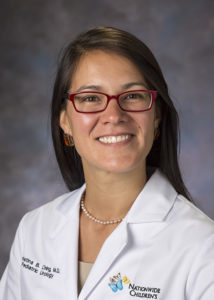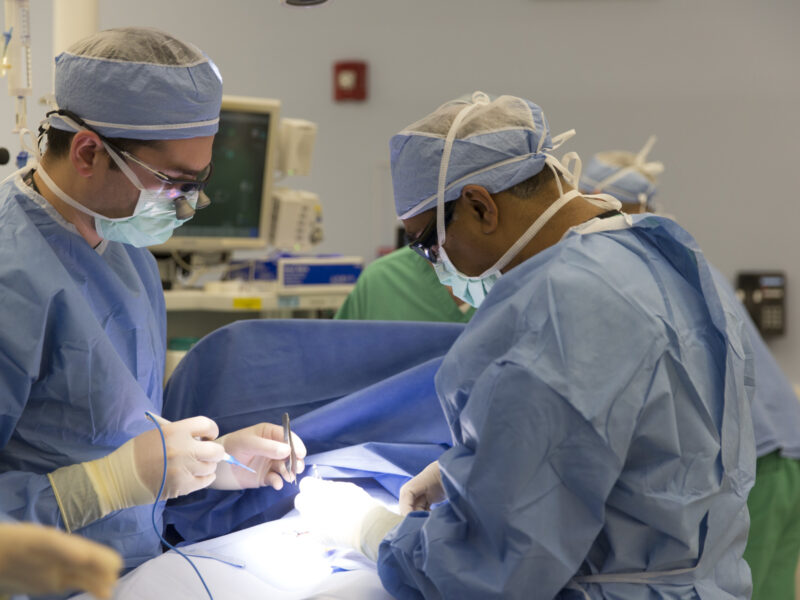Investigating Caregiver Disclosure of Pediatric Urologic Surgery
Investigating Caregiver Disclosure of Pediatric Urologic Surgery https://pediatricsnationwide.org/wp-content/uploads/2020/12/AdobeStock_32667489_mr-executive-functions-header-1024x575.gif 1024 575 Mary Bates, PhD Mary Bates, PhD https://secure.gravatar.com/avatar/c6233ca2b7754ab7c4c820e14eb518c8?s=96&d=mm&r=g- May 05, 2023
- Mary Bates, PhD

A survey reveals most caregivers plan to disclose urologic surgery to their child but would like more guidance from providers.
Some pediatric urologic surgeries are performed early in childhood and with short-term follow-up. When children have surgery before the age of memory formation, it is up to their caregiver to disclose this surgery to them. Although it is important for a child to be aware of their diagnosis and any prior surgery, when and how to disclose this information is not clear.
In a new study, researchers at Nationwide Children’s surveyed caregivers to assess their plans to disclose early childhood urologic surgeries. They distributed a questionnaire to caregivers of male children under four years old undergoing outpatient surgeries of either single stage repair of hypospadias, inguinal hernia, chordee or cryptorchidism.

Christina Ching, MD
“We looked at more impactful surgeries, where knowing that history would matter,” says senior author Christina Ching, MD, a pediatric urologist at Nationwide Children’s. “There could be complications or long-term impacts that may not be immediate but could affect these patients in adulthood.”
Of the 120 survey respondents, 108 said they planned to disclose their child’s surgery.
“We found that the majority of caregivers were planning to disclose the surgery, but still one in ten was not,” says Dr. Ching. “And we would really like 100% of caregivers to disclose this information.”
While no specific surgery or demographic factor was associated with plans to disclose surgery, Black/African American caregivers reported being more “concerned or nervous” about disclosing the surgery to their child.
In addition, only 14% of respondents said they received any information about how to discuss the surgery with their child; however, 69% felt this information would be helpful.
“We saw a disparity in what guidance was given by the provider to the caregiver and what the caregiver would have liked,” says Dr. Ching. “This is important because it highlights the need for resources to assist caregivers in disclosing early childhood urologic surgery to their child.”
Dr. Ching says that her co-author, Michael Ernst, MD, now at SUNY Stony Brook, is following up on how to train providers to bridge the gap and better support patients and families.
“We owe it to the patients to follow up on studies like this that identify an opportunity to provide better care,” says Dr. Ching. “Providing the best care possible for our patients requires thinking ahead and anticipating: Maybe you are performing this surgery on a child who is only two years old, but what’s going to happen when that patient is 22 years old? What will they need to know?”
Reference:
Ernst M, Klamer B, Thompson N, Alpert S, Dajusta D, Fuchs M, McLeod D, Jayanthi R, Ching C. Caregiver disclosure of common early childhood pediatric urologic surgeries. Journal of Pediatric Urology. 2023 Feb 23:S1477-5131(23)00062-1. doi: 10.1016/j.jpurol.2023.02.012.
Image credit: Adobe Stock
About the author
Mary a freelance science writer and blogger based in Boston. Her favorite topics include biology, psychology, neuroscience, ecology, and animal behavior. She has a BA in Biology-Psychology with a minor in English from Skidmore College in Saratoga Springs, NY, and a PhD from Brown University, where she researched bat echolocation and bullfrog chorusing.
-
Mary Bates, PhDhttps://pediatricsnationwide.org/author/mary-bates-phd/December 27, 2016
-
Mary Bates, PhDhttps://pediatricsnationwide.org/author/mary-bates-phd/
-
Mary Bates, PhDhttps://pediatricsnationwide.org/author/mary-bates-phd/
-
Mary Bates, PhDhttps://pediatricsnationwide.org/author/mary-bates-phd/
- Post Tags:
- Parent Education
- Parenting
- Surgery
- Urology
- Posted In:
- Clinical Updates
- Features
- Research






